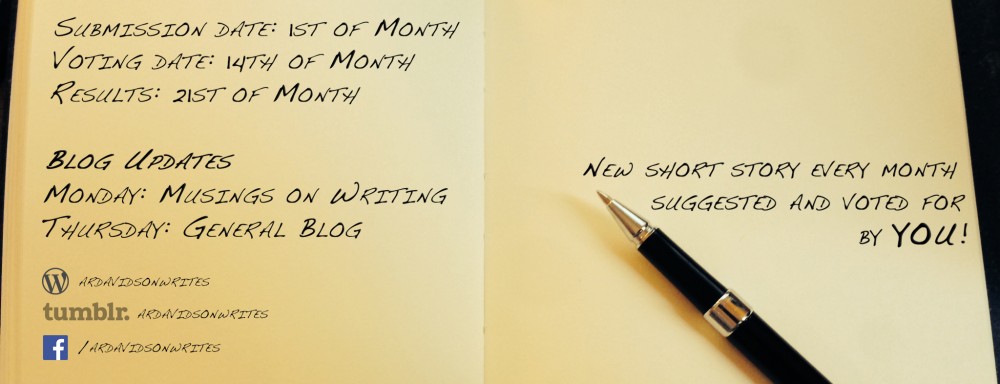Hello,
For my first Monday Musing I thought I would start with the question most frequently asked of me: “Do you have an ending?”
Endings are regarded as the most important part of a narrative experience. You can afford to start weak if your ending is strong. The ideal would be to have a strong start, a great middle and a fantastic end. I loved Joe Abercrombie’s Best Served Cold because I was instantly hooked from the opening chapter. It’s his best writing and his best characters.
A story simply can’t afford a limp ending that readers feel cheated by. I’ve just finished reading Kate Mosse’s Citadel which I thought had a deeply satisfying ending. Emotional, truthful and, importantly, right for the characters. Conversely I threw David Mitchell’s Cloud Atlas to the floor when I finished it. I loved the individual elements but felt no sense of completion at the end.
Those are my opinions on the aforementioned books, you may share them or not.
With my story I actually started with the ending and tracked back from there. The inception of the story goes back about four or five years and has changed a lot over that time. I eventually found an interesting hook for the story and it has grown into what it is now. That’s not to say that the ending I started with will be the ending that the book will have. I’ve been toying with variations of it recently. I’m not locking myself into anything at this point.
I have told some of my closest friends what this ending is and their reactions have varied so far, I think it depends on their personality. Don’t read too much into this next statement, but I like a certain amount of ambiguity in my work. I think it was the director Adrian Lyne when talking about his film adaptation of Lolita who said that he wanted the audience to figure out for themselves how they felt about the characters and what happened, rather than being told what to think. I’m paraphrasing there. My point is that I like to create a story and draw attention to the plot, characters and themes and then go: “And you decide what that means.”
Excuse my horrific self promotion here as I use a short film I made 10 years ago for demonstration purposes. I feel we said everything that we wanted to in the story, explored and re-explored the central theme and left it at a point where the audience has to think how they choose to interpret what has happened and where the character goes next.
There tends to be a 50/50 split between people rationalizing the events and those that want to see something else. I argue that both are correct and both possibilities are accounted for in the film.
Upon explaining the ending of my book, many people nod sagely and say “Yes that makes sense.” Others agree that the ending works but are concerned that there may not be the clarity that they want. I think that is the key to any ending. I can be as vague about the specifics as I like but if people don’t feel that the threads of the narrative are adequately tied up it will feel like a cheat. So, again, I’m sort of catering to different groups.
This isn’t to say that it works with every story. Some stories need to be tied with a bow and pronounced complete. I will write those stories for sure. That’s just not this book. That’s not who this character is.
It’s hard to talk specifically about what the ending is because I don’t want to spoil it, I haven’t told you what the story is about yet (that’s coming very soon), and where the main character ends up may not be where I think she is supposed to find herself. I have explained my intentions of how I will wrap up the story to people and hope that I will be able to deliver. It’s certainly the right ending for the character and what happens to her.
I think what I’m keen to achieve is that I want the ending to be talked about, to be debated, I want people to have different interpretations of the events (all of which, and more will be correct), but for the finale of the character’s journey, of her experiences, of who she is at the end to be satisfying and rewarding.
– Andrew

